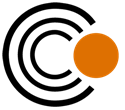 Course Snapshot for HIS112 - The World: 1500-Present
Course Snapshot for HIS112 - The World: 1500-Present
The information listed below is subject to change. Please review the course syllabus within your online course at the start of class.
Course Competencies
The competencies you will demonstrate in this course are as follows:
- Discuss the Age of Discovery, Renaissance, and expansion and the effects of European politics, religion, and war on the New World.
- Review Europe’s transitions during the Scientific Revolution and the Agricultural Revolution.
- Describe the slave trade and its impact on Africa.
- Describe the boundaries of the Ottoman and Persian states and describe their cultures and religions.
- Explain the rise of colonialism and its impact on native peoples around the world.
- Discuss the important ideas and people of the American and French revolutions, and the effect Napoleon had on Europe.
- Discuss the importance of technology in production and trade, how new energy sources and improved transportation changed the face of Europe, how government regulations (or lack thereof) provided capital and cheap labor for industrialization.
- Explain the tenets of Socialism, describe the Romantic Movement, the various reform movements and revolutions that occurred throughout Europe, and the growth of European nationalism and its long term effects, as well as colonial responses to imperialism.
- Analyze world-wide changes between the outbreak of World War I through the Cold War, including the effects of imperialism and nationalism.
- Discuss the prevalence of poverty in third world nations, possible solutions to the population explosion, new trends in world politics, and global interdependence.
- Four general goals integrate history with workplace skills:
- Acquire information from many sources.
- Break complex and multiple sources of information down into parts to create clearer understanding.
- Understand the impact of time and space on perspective.
- Develop narrative structures and arguments based on evidence.
- Throughout the course, students should be introduced to course content, practice using course content, and demonstrate they can:
- Understand the events covered in the course in historical context and recognize how social, cultural, gender, race, religion, nationality and other identities affect historical perspective.
- Communicate orally and in writing about the subject of the course and select and apply contemporary forms of technology to solve problems and compile information.
- Use different resources for historical research, including libraries, databases, bibliographies and archives
- Analyze secondary sources and recognize differences in historical interpretation.
- Identify types of primary sources, the point of view and purpose of their author or creator.
- Create substantive writing samples which employ critical analysis of primary and secondary sources, and document those sources correctly.
- Construct knowledge in the discipline and synthesize historical narratives and timelines from primary and secondary sources, maps, and/or artifacts and critically analyze, interpret and evaluate many different points of view to construct historical arguments.
The module outcomes that will permit you to demonstrate course competencies are:
Module 1 Outcomes Competencies 1 Introduce self to peers and instructor and discuss the importance of studying history 1 2 Identify the “push factors” behind European explorations. 1 3 Discuss the Age of Discovery 1 4 Identify the characteristics of life, the major artists, and ideals during the Italian Renaissance and how these characteristics contributed to an age of exploration. 1, 11a, 12a, 12b 5 Discuss expansion and the effects of European politics, religion, and war on the New World 1 6 Build research and writing skills by tracing familial migration and finding at least 10 sources about the history of that culture 1, 11a-d,12a-h Module 2 Outcomes Competencies 1 Discuss Europe’s transitions during the Scientific Revolution and the Agricultural Revolution. 2 2 Discuss the Atlantic Slave Trade and its impact on Africa 3, 5 3 Examine the Islamic empires 4 4 Explore the consequences of the Reformation 12a-h 5 Create a first person, fictional historical narrative, which illustrates student’s knowledge of events, people, and culture during the time period covered in this module 2, 3, 4, 5, 11a-d, 12b-d Module 3 Outcomes Competencies 1 Examine the Haitian Revolution 6, 12a, 12b, 12h 2 Trace events which led to the American Revolution. 6, 12a, 12b, 12h 3 Explain the impact of the French Revolution and Napoleon 6, 12a, 12b, 12h 4 Evaluate and analyze primary and secondary sources 6, 5, 7, 8, 11a-h, 12c, d, e, f, g, h Module 4 Outcomes Competencies 1 Examine and discuss the importance of technology in production and trade, how new energy sources and improved transportation changed the face of Europe, how government regulations (or lack thereof) provided capital and cheap labor for industrialization 7 2 Explain the tenets of Socialism, the growth of European nationalism and its long term effects, and the Romantic Movement 8 3 Describe the various reform movements 8, 12a 4 Describe revolutions that occurred throughout Europe 8 5 Produce a complete well-researched draft of the Inventions of the World assignment 11a-d, 12a-h Module 5 Outcomes Competencies 1 Analyze and discuss the worldwide changes caused by WWI and the effects of imperialism and nationalism 9 2 Analyze and discuss the worldwide changes caused by WWII 9 3 Analyze and discuss the worldwide changes caused by the Cold War 9 4 Explore the student protest movements of the 1960s 9, 12a-h 5 Write a report on a Virtual Museum Tour 9, 11a-d, 12a-h Module 6 Outcomes Competencies 1 Analyze and discuss the prevalence of poverty in third world nations 10 2 Examine and discuss possible solutions to the population explosion 10 3 Analyze new trends in world politics 10 4 Examine the effects of globalization 10 5 Present research results to instructor and peers using current presentation technologies 12a-h 6 Explore America's informal empire 10 7 Create a complete, well-researched and proofread final draft of the Inventions of the World assignment and Presentation 11a-d, 12a-h